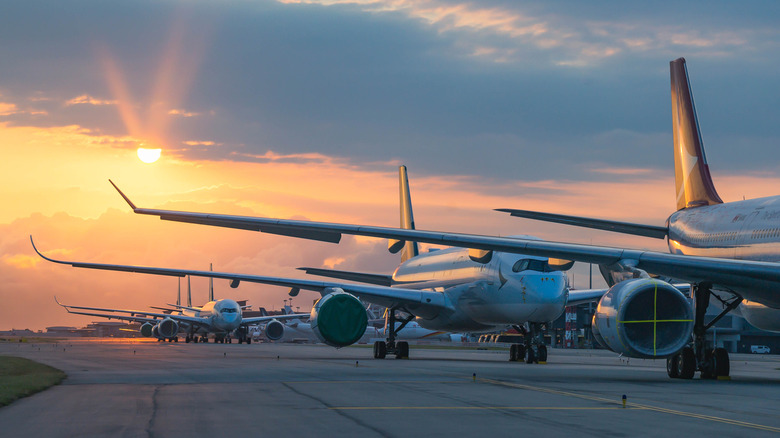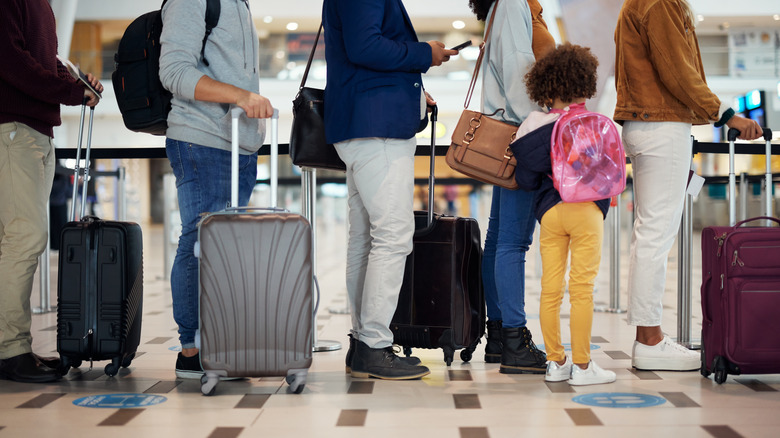Why Do Airlines Need To Ground Stop Flights? Here's What Travelers Should Know
Flight delays are frustrating enough, but when you add the dreaded word "ground stop," the disruption can feel overwhelming. A ground stop effectively hits pause on air traffic, whether to slow it down or stop it altogether. The order might apply to just one airport, a geographical area, or even a certain type of aircraft. Ground stops are imposed mostly for safety due to reasons including weather, technical failures, or air traffic control issues.
Ground stops are more common than you would think, as becomes apparent when you check the National Airspace System Status map. Among the most publicized, American Airlines called a brief nationwide ground stop on Christmas Eve 2024 —imagine having to navigate the busy airports during the holidays. And United Airlines made the news due to a tech-related ground stop on all North American flights in September 2025.
If the flight you were planning to take gets hit by a ground stop, the immediate concern should be to sort out travel arrangements before focusing on compensation. Keep in mind that every fellow flyer affected will be doing the same, so a couple of minutes may make the difference between continuing on your merry way or getting stranded overnight. The very first to do if your flight gets cancelled or delayed due to a widespread ground stop is to consider taking alternative transportation, such as train, ferry, or car. If flying is still an option, check to see if a nearby airport has not been affected (sometimes ground stops can create knock-on effects on neighboring operations). The first instinct at the airport is to approach the airline counter — so will everyone else. Try first to look directly through the app or website, because phone lines will probably also get jammed up.
Useful things to know about how ground stops work
The National Business Aviation Association (NBAA) explains that a ground stop will always have an estimated duration, but that timestamp doesn't mean that it will be lifted, it just indicates the time before the next evaluation to see if it needs to be extended or not. When it is wider in scope, the ground stop will be ordered by the Federal Aviation Administration, but some can be initiated by the airport locally.
Some ground stops can also be requested by the airline, as was the case with United Airlines in September 2025 when it briefly grounded all flights from the U.S. and Canada, due to a "connectivity issue," as reported by USA Today. The same happened to Alaska Airlines in July, when it stopped flights systemwide due to an IT issue, according to The Guardian. Airlines have unique policies, but are not obligated to provide compensation for matters beyond their control, such as weather events. However, they must rebook your flight without any penalty fee and provide credit or travel vouchers for delays longer than three hours. Most will offer a hotel voucher if the delay is overnight. The U.S. Department of Transportation provides a guide to what passengers should know about their rights on the main 10 carriers.
Ground stops are one of those situations when you make a mental note to check out single-trip travel insurance in the future. Whatever you do, don't take the ground stop as a license to show up later at the airport. It can be a short blip lifted as quickly as it was imposed. Your flight could end up taking off on time, and leave you behind.

